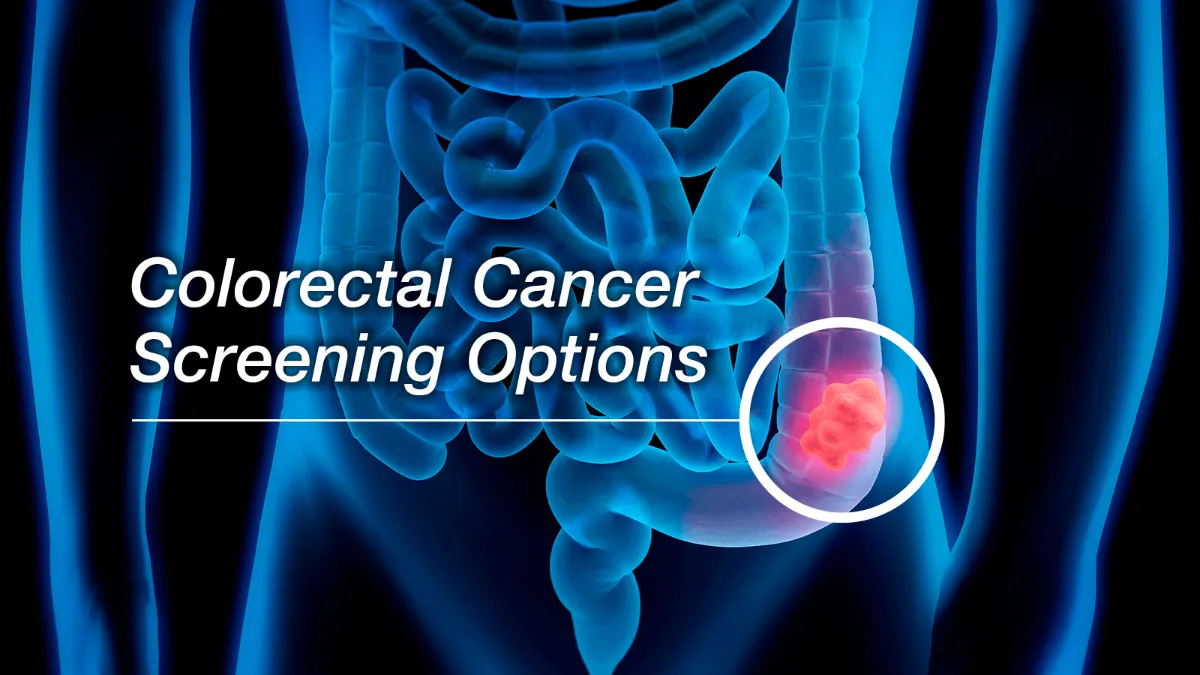Why Screening is Important
Colorectal cancer screening helps doctors find and remove precancerous polyps before they turn into cancer. It can also detect colorectal cancer early when it’s easier to treat. Screening involves medical tests to check for cancer even if you don’t have symptoms.
What is Colorectal Cancer?
Colorectal cancer starts in the colon or rectum, which are parts of the large bowel. It often begins as a polyp, a small growth on the inner lining of the colon or rectum. Most polyps are harmless, but some can become cancer over time. Early-stage colorectal cancer often has no symptoms, which is why screening is so important.
Benefits of Screening
Dr. Rachel Issaka, a cancer expert, says screening helps find polyps before they become cancer and catches cancer early when it’s most treatable. Early detection has a high survival rate—over 90% of people diagnosed early are still alive five years later.
Screening Guidelines
The American College of Gastroenterology (ACG) recommends starting colorectal cancer screening at age 45 for people at average risk. This is a change from earlier guidelines, which suggested starting at 50 for most people.
Who Should Screen Earlier?
Your doctor may recommend starting screening before 45 if you have:
- A family history of colorectal cancer or advanced polyps.
- Genetic conditions that increase cancer risk.
- Medical conditions like inflammatory bowel disease (IBD) or primary sclerosing cholangitis (PSC).
Types of Screening Tests
There are two main types of screening: one-step and two-step testing.
One-Step Testing
This involves a colonoscopy, where a doctor uses a thin, flexible tube with a camera to examine your colon and rectum. If they find polyps, they can remove them or take tissue samples for testing.
Two-Step Testing
This starts with one of the following tests:
- Fecal Immunochemical Test (FIT): You collect a stool sample at home, and a lab checks it for blood, which could be a sign of cancer.
- Other Stool Tests: These look for cancer biomarkers.
- Flexible Sigmoidoscopy: A doctor examines the lower part of your colon.
- CT Colonography: A CT scan creates images of your colon.
- Colon Capsule Endoscopy: You swallow a small camera that takes pictures of your digestive tract.
If any of these tests show signs of cancer, your doctor will recommend a colonoscopy as the next step.
How Often Should You Get Screened?
The ACG recommends:
- FIT testing every year.
- Colonoscopy every 10 years.
Your doctor may adjust this based on your risk factors or the type of test you choose.
When to Stop Screening
Screening is recommended until age 75 for people at average risk. After 75, the risks of screening may outweigh the benefits for some people. Talk to your doctor to decide what’s best for you.
How Common is Colorectal Cancer?
Colorectal cancer is the third most common cancer in the U.S. About 1 in 24 men and 1 in 26 women will develop it in their lifetime. While overall rates have dropped in older adults, cases in people under 50 are rising.
Risk Factors for Colorectal Cancer
Certain factors increase your risk:
- Family History: Having a close relative with colorectal cancer or advanced polyps.
- Genetic Conditions: Conditions like Lynch syndrome or familial adenomatous polyposis (FAP).
- Medical Conditions: IBD or PSC.
- Lifestyle Factors: Being overweight, inactive, or having a diet low in fiber and high in processed meats.
Managing Your Risk
Your doctor may recommend:
- Eating more fruits, vegetables, and whole grains.
- Exercising regularly.
- Limiting alcohol and avoiding tobacco.
When to Talk to Your Doctor
It’s never too early to discuss screening with your doctor. Ask questions like:
- When should I start screening?
- What tests do you recommend?
- How do I prepare for the test?
- What do the results mean?
Your doctor can help you understand your risk and guide you through the screening process.
Key Takeaways
- Colorectal cancer screening can save lives by finding cancer early or preventing it.
- Start screening at 45 if you’re at average risk, or earlier if you have risk factors.
- Talk to your doctor about which test is right for you and how often you should be screened.
By staying informed and following screening guidelines, you can take important steps to protect your health.
Additional Tips for Prevention
- Eat a Healthy Diet: Focus on fiber-rich foods like fruits, vegetables, and whole grains. Avoid processed meats and limit red meat.
- Stay Active: Regular exercise can lower your risk of colorectal cancer.
- Avoid Smoking and Limit Alcohol: Both smoking and heavy alcohol use increase cancer risk.
- Know Your Family History: Share your family’s medical history with your doctor to determine if you need earlier or more frequent screening.
Final Thoughts
Colorectal cancer screening is a powerful tool for prevention and early detection. By understanding your risk factors and following your doctor’s recommendations, you can take control of your health and reduce your chances of developing this disease. Don’t wait—talk to your doctor today about when and how to get screened.

